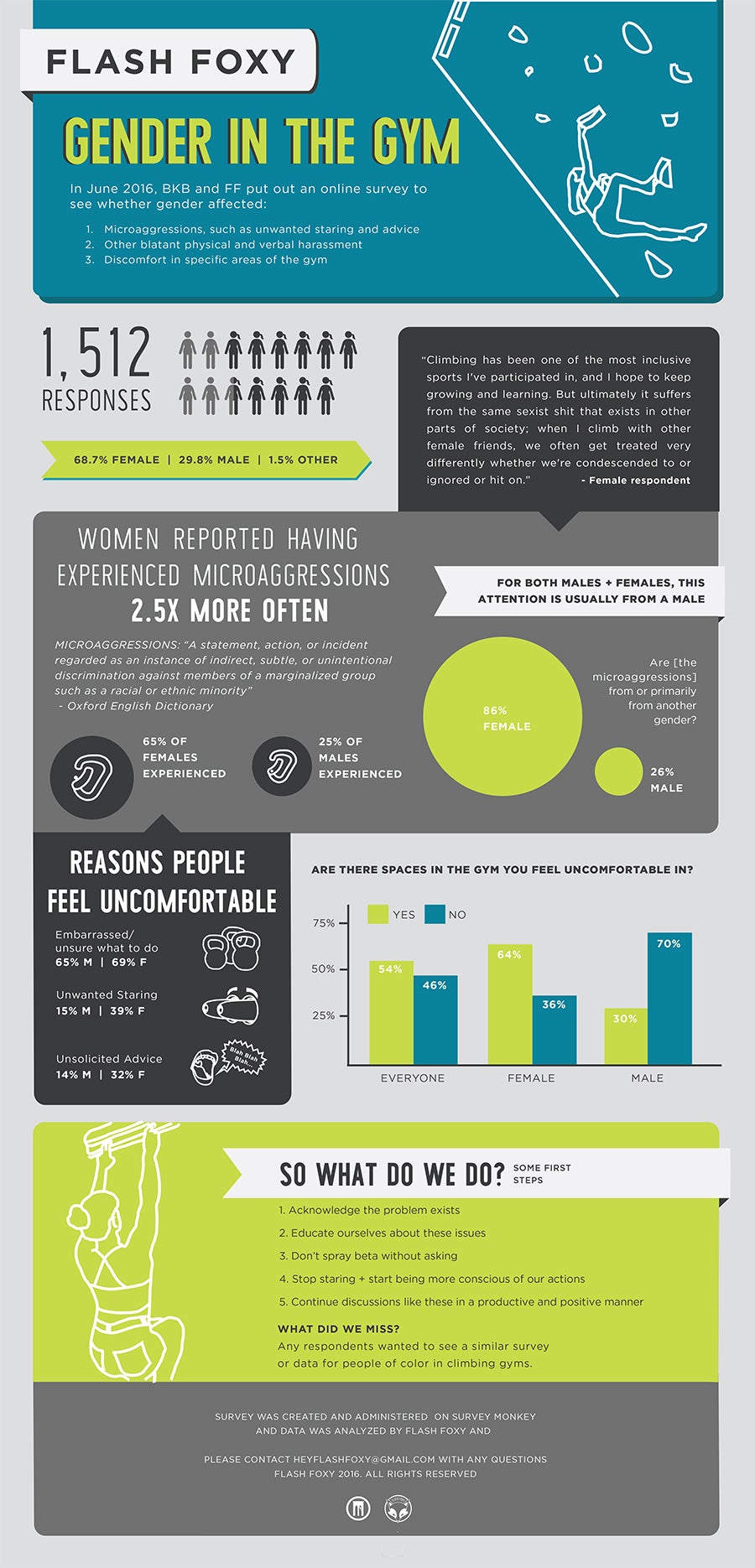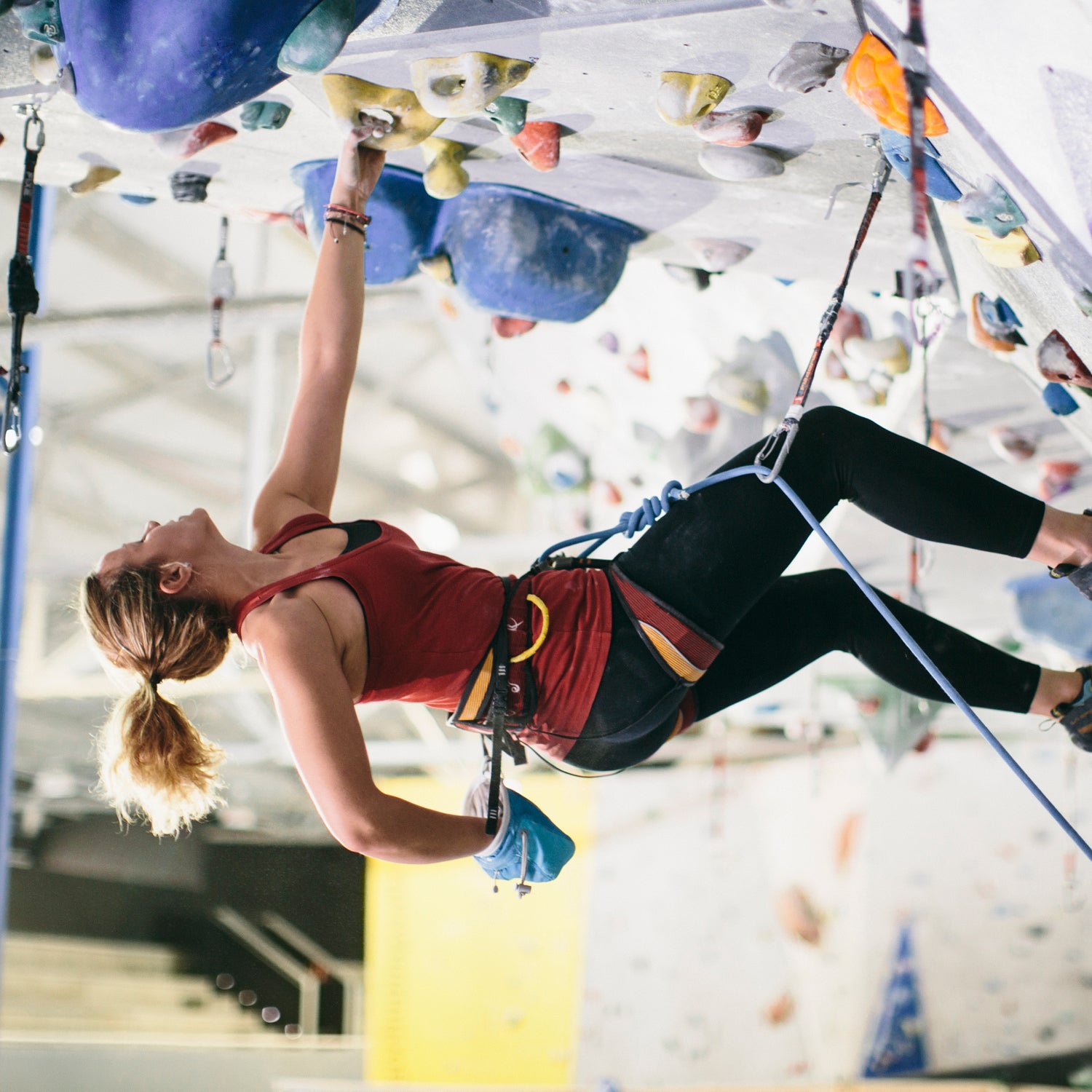It happens all the time. Someone assumes you’re waiting to climb an easy route. Someone sprays you down with bad beta while staring at your sports bra. Someone assumes your belay buddy is your boyfriend—who also taught you how to climb. And this someone, in my experience, is almost always a guy.
Last month, women's climbing community Flash Foxy put out a survey asking climbers about how gender affects their experiences at the gym. We gathered data on the correlation between gender and microaggressions, such as unwanted staring and advice, blatant physical and verbal harassment, and general discomfort in specific areas of the gym. The survey was available online and open to anyone for two weeks. It consisted of 28 questions and provided an opportunity for anecdotal feedback. We received over 1,500 responses: 29.8 percent male, 68.7 percent female, and 1.5 percent other.
What we found was overlooked gender discrimination and a sexist culture in our climbing gyms. Sixty-four percent of women who took the survey said they felt uncomfortable, insulted, or dismissed at some point during their training, as opposed to 29 percent of men. “Ultimately [climbing] suffers from the same sexist shit that exists in other parts of society,” one woman wrote in the survey. “When I climb with other female friends, we often get treated very differently, whether we're condescended to, ignored, or hit on.”
How can we address the issue of sexism in climbing gyms?

Acknowledge the Problem
“I don't see how it can be more inclusive,” one male climber wrote in the survey. “If you like rock climbing or bouldering, that’s all you need to feel comfortable and included. No one really bothers you if you don't wish to be bothered. Most people just mind their own business.”
The results of our survey suggest the opposite. While 65 percent of women said they had experienced microaggressions, only 25 percent of men responded the same way. And 39 percent of women complained of unwanted staring, more than double the percentage reported by men who took the survey. Plus, less than one-third of those men reported that the microaggressions came primarily from someone of the other gender—in contrast to 86 percent of women. In other words, just because most women don’t experience blatant, aggressive sexual harassment at their climbing gyms, doesn’t mean it’s not there in the form of condescension or unwanted flirtation. Step one to finding a solution is admitting that sexism is a very real thing within the climbing community.
Ask Before Offering Advice
According to our results, the primary reason for feeling uncomfortable or avoiding certain parts of the gym for both men and women was the embarrassment of not knowing what to do or a lower skill level. I know it can be tempting to give advice that you think will help a fellow climber. But results show that 32 percent of women experience unwanted advice in the climbing gym (as opposed to 15 percent of men). Even if you’re giving beta with the best of intentions, it’s better to take a moment to ask someone if they’d like your help first. If they decline, respect their decision.
Think Twice Before Giving a “Compliment”
Demeaning comments like “you’re really strong for a girl” or “you’re stronger than you look” are patronizing and disrespectful. Feeding into sexist stereotypes will only perpetuate the problem. Gender should never negatively affect someone's experience at the gym, and we can change the issue of sexism in the climbing community by considering what we say before we say it.

